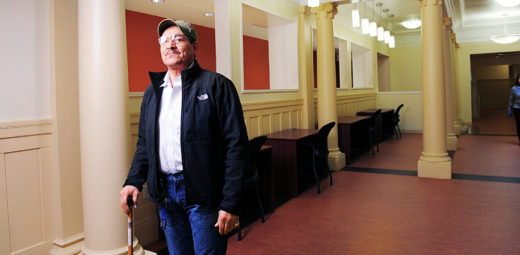
Jan 21Where will low-income, aging Baby Boomers live?
Every day, roughly 10,000 Baby Boomers turn 65, and by 2040, older adults are expected to make up more than 20 percent of the population.
This astounding demographic change has been dubbed “The Silver Tsunami.” As the nationwide affordable housing crisis continues, and in many places worsens, and as federal resources for senior housing have all but disappeared, many worry about where the nation’s older adults will live, especially those with low incomes.
These concerns are valid: many low-income seniors can’t find housing and end up on the streets. Others end up hospitalized for conditions aggravated by a lack of housing. And many end up in nursing homes, simply because they have nowhere else to go.
Mercy Housing, a national nonprofit affordable housing developer and service provider, has embarked on a mission to create affordable senior housing despite the lack of capital funding for such projects. To accomplish their mission, they have turned to a novel private capital finance structure.
By using this uncommon funding approach, as part of their Senior Health and Housing Initiative, they hope to acquire existing buildings and convert them into affordable, service-enriched housing in a fraction of the time it typically takes to complete such projects.
We sat down with Doug Shoemaker, President of Mercy Housing California, to learn more about this new financing model and its potential impact on the affordable housing industry. Read the full interview here.
No related posts.
Stay Up To Date
Get news on Mercy Housing and inspiring stories of change delivered to your inbox.


